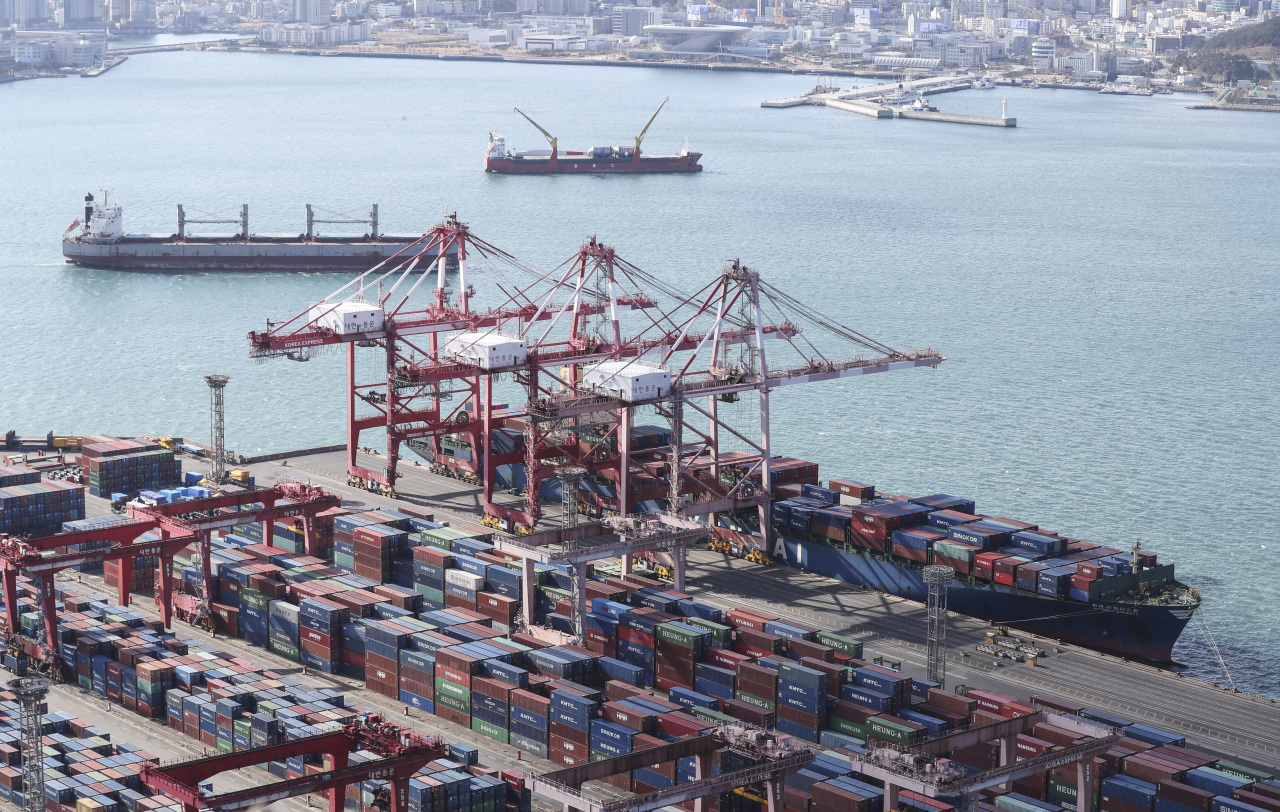 |
Shipping containers at Busan Port. (Yonhap) |
South Korea and the Association of Southeast Asian Nations have agreed to cut red tape in customs checks to boost trade, until they see the coronavirus pandemic subside, Korea’s Finance Ministry said Monday.
Copies of a product’s certificate of origin will now be accepted for tariff cuts guaranteed under their free trade agreement that took effect in June 2007. The original certificates had been shipped late because of the pandemic.
“Nearly 40,000 Korean firms exporting to ASEAN will benefit from the change,” the Finance Ministry said, adding that the 10-member bloc accepted Seoul’s proposal that they also dismiss minor errors in the document that could suspend preferential tariff treatment.
Several ASEAN countries had denied Korean firms tariff cuts because the certificate of origin did not match the other export documentation.
“We’ve asked the Southeast Asian nations not to suspend preferential tariff treatment if the reason involved small errors that would not critically affect the integrity of the entire exports,” a Finance Ministry official said.
Since June 2007, Seoul saw its trade with ASEAN more than double. The 10-member coalition includes: Brunei, Cambodia, Indonesia, Laos, Malaysia, Myanmar, the Philippines, Thailand, Singapore and Vietnam.
Meanwhile, the Gyeonggi provincial government said it helped 31 companies headquartered in the province to reach deals with their ASEAN counterparts that could amount to 12 billion won ($10 million).
In November, the provincial government launched a task force in charge of promoting trade ties between firms there and ASEAN companies to help the mostly small and medium businesses expand reach in Southeast Asia.
The task force is part of broader efforts to boost exports by the province with the largest population at 13 million, which along with Seoul whose population stands at 9 million, makes up almost half the Korean population.
“A lot of companies looking to make huge exports still face difficulties finding the right buyers and we’re here to help them out. Our work continues next year,” a Gyeonggi provincial government official said.
Products that align with the global race to cut carbon emissions will take center stage next year, the official added.
By Choi Si-young (
siyoungchoi@heraldcorp.com)








